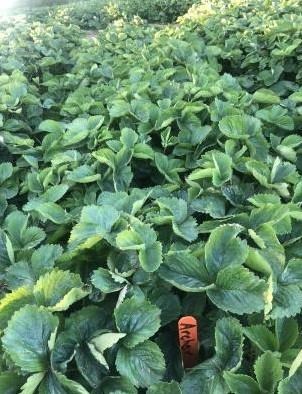By Suzanne Slack
With nighttime frost and freezing temperatures in the forecast, a fruit crop specialist with Iowa State University Extension and Outreach reminds strawberry producers of the importance of keeping their plants covered.
Suzanne Slack, assistant professor and fruit crop specialist with ISU Extension and Outreach, wrote an article for the September-October edition of “Acreage Living Newsletter,” where she covers the basics of “Strawberry Winter Stress Survival.”

Although freezing and thawing cycles can be detrimental to strawberries, Slack said it’s actually good to cover the plants after one or two light frosts, as this ensures the plants have hardened off before being covered.
“There’s a lot of confusion of when the best time is to cover strawberry plants, especially among beginning growers,” said Slack. “I recommend growers wait until after the first couple light frosts, so the plants have the chance to prepare naturally for winter.”
As temperatures continue to fall, and as heavier frosts are expected, strawberry plants should be covered. Mulch is a common option, and she recommends using a material that has no pesticide residue, is weed-free and has large particles.
Excellent choices include wheat, oat or soybean straw, and chopped cornstalks can also be used. Leaves typically make a poor-quality mulch, because they often mat together and they are prone to moisture and freezing issues.
“Plastic covers work well and are becoming more popular due to ease of placement and removal,” said Slack. “Use a thicker plastic and make sure the edges are weighed or tied down to keep heat in.”
Strawberry buds will perish below 20 degrees Fahrenheit, which can mean no fruit for June-bearing cultivars. After winter, the flower buds are sensitive to temperatures below 32 F or lower. The best time to remove any cover from the strawberries is after the threat of frost is over.
Slack is part of a research project at Iowa State to further evaluate strawberry cultivars and their ability to overwinter successfully. The research, conducted by the perennial fruit program, is aimed at providing more insight into fall strawberry plantings and provide more options for growers.
Source : iastate.edu